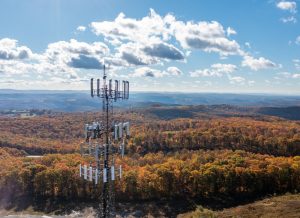Washington, D.C. – In a landmark decision for the nation’s broadband future, the Federal Communications Commission (FCC) unanimously voted to expand the unlicensed use of the 6 GHz spectrum band. This pivotal move aims to address the growing demands of the connected economy, paving the way for enhanced internet access and innovations in wireless technologies. The decision comes when internet-based goods, services, and communications become integral to everyday life, from remote work and telehealth to IoT and smart city applications. By opening up additional spectrum for unlicensed use, the FCC aims to facilitate more reliable and efficient broadband connections while promoting competition and innovation.
The Role of the 6 GHz Band
The 6 GHz spectrum band is a critical resource in the broadband ecosystem. Historically used for licensed applications, such as fixed microwave links, the band will now support unlicensed devices, including Wi-Fi 6E and future Wi-Fi 7 technologies. This shift is expected to unlock faster speeds, lower latency, and greater network capacity for millions of users across the United States. FCC Chairwoman Jessica Rosenworcel praised the decision, stating, “Expanding unlicensed use of the 6 GHz band is a win for innovation, competition, and connectivity. This decision underscores our commitment to meeting the needs of the connected economy and ensuring that all Americans have access to robust and reliable broadband services.”
Industry and Advocacy Group Support
The move has garnered strong support from industry stakeholders and advocacy groups. The Computer & Communications Industry Association (CCIA), a long-time advocate for expanded broadband access, hailed the FCC’s decision as a major milestone. “For more than three decades, CCIA has championed the deployment of broadband to meet growing demand,” said Matt Schruers, President of CCIA. “Today’s decision is a testament to the FCC’s leadership in fostering an environment that supports innovation and economic growth. By expanding unlicensed use of the 6 GHz band, we can ensure that the U.S. remains at the forefront of the digital revolution.”
The Consumer Technology Association (CTA) also expressed optimism about the potential benefits of the expanded spectrum. “This move will empower industries to deliver cutting-edge solutions while driving economic opportunity,” noted Gary Shapiro, President and CEO of CTA.
Economic and Technological Implications
Expanding unlicensed use of the 6 GHz band is expected to generate significant economic and societal benefits. According to a study by the Wi-Fi Alliance, unlocking additional unlicensed spectrum could add nearly $200 billion to the U.S. economy by 2025 through increased productivity and innovation. Moreover, the decision aligns with the U.S. government’s broader goals of closing the digital divide and advancing next-generation technologies. The unlicensed spectrum will support rural broadband initiatives, enhance public Wi-Fi availability, and enable emerging technologies like augmented reality (AR), virtual reality (VR), and the Internet of Things (IoT).
Challenges and Next Steps
While the FCC’s decision marks a significant step forward, challenges remain in ensuring efficient and equitable spectrum utilization. Interference with existing licensed services in the band must be carefully managed to prevent disruptions. The FCC plans to implement rigorous technical safeguards and monitoring mechanisms to address these concerns. Additionally, stakeholders will collaborate on developing coexistence strategies that balance the needs of licensed and unlicensed users. The FCC’s unanimous vote to expand unlicensed use of the 6 GHz band represents a transformative moment in the evolution of U.S. broadband policy. The decision promises to drive innovation, bridge the digital divide, and solidify America’s leadership in the global digital economy by unlocking new spectrum resources.




